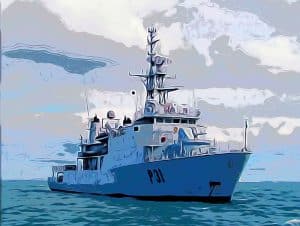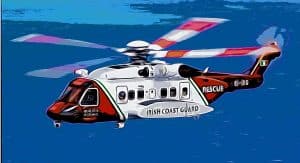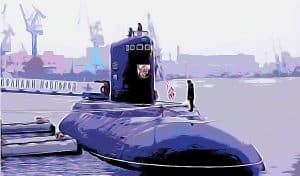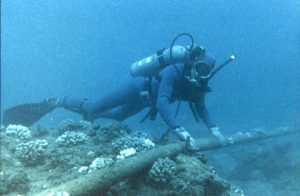Introduction.
As the lights begin to go off in Europe, the State continues to abdicate responsibility for national defence and is failing to fulfil its key obligations as an independent entity in international law. The geopolitical situation continues to rapidly deteriorate yet the government is engaged in a massive PR exercise ostensibly celebrating the centenary of independence.
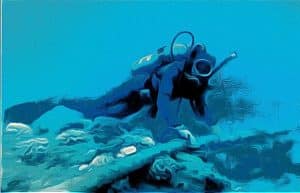
Because of a reckless disregard for our security we have insufficient numbers of defence personnel to deploy our ships or put aircraft fit for purpose into the sky.
Rather than discharging their duty to properly maintain and equip the defence forces the government response is to reduce the number of ships and seek to privatise the role of the defence forces.
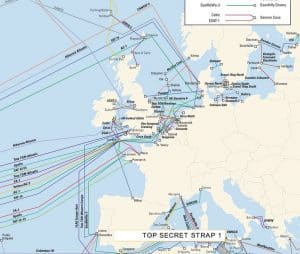
War in Europe 1939
On 1 September 1939 the government ordered the full mobilisation of the Defence Forces including all reserves. By the end of that month some 19,000 troops were under arms which was 50% of the agreed war establishment strength of 37,000.
However, this limited expansion was objected to by the Department of Finance. Within two months of mobilisation Finance had forced the Army to contract its size in the interests of economy. By January 1940 Defence Force numbers had fallen to 16,000 and by May to 13,500.

In January 1940 the government appointed General McKenna as Chief of Staff. He reported “a complete absence of the most important weapons, … namely anti-tank weapons, anti-aircraft weapons …”.
He also had no officers.
The dead hand of the Department of Finance
Since the foundation of the Officer Cadet School at the Military College in 1928 up to 1939, the State had only commissioned about 100 officers through the Cadet School most of whom spent over 9 years as Second Lieutenants without promotion. No adequate provision was made by Finance for the Army.
By May 1940 following the collapse of France, Germany was in possession of the Atlantic coastline from Norway to the South of France. Ireland was an obvious candidate for invasion: by Germany to seize ports and airfields with which to assist the invasion of Britain and threaten Britain’s Atlantic lifeline. It was also at risk of an invasion by Britain to seize the treaty ports. This was within seven months of the Department of Finance having drastically cut the Army.
The Government finally acted, and the leaders of Fianna Fáil and Fine Gael issued a call to arms which had a dramatic effect. Those who fought on both sides of the Civil War, rallied to the colours and by March 1941 the Army was over 41,000 strong and the Local Defence Force (later the FCA now called the Reserve) had a strength of 88,000.
By 1941 Britain was putting an economic blockade into effect against Ireland and denying key materiel to Ireland. The aim of the blockade was to extract Irish concessions on defence, in particular the Treaty ports. We will come back to this later.
However, the dead hand of Finance was still causing major problems for the Army with Finance refusing to sanction the commissioning of experienced NCOs as officers to fill a drastic shortage of officers and further compounded the difficulty of recruiting good officer material.
The Department of Defence is a decoy department; the decisions are made by the Department of Finance. Complaints about Finance obstructing NCO promotions were repeated in 1941–42.
The Department of Defence is a decoy department; the decisions are made by the Department of Finance. Complaints about Finance obstructing NCO promotions were repeated in 1941–42.
History Repeats Itself with War in Europe in 2022
Today, the current establishment as of the 30th of November 2021 shows a total strength of 8,539 for the Army, Navy and Air Corps against an establishment of 9,500 that is for the Permanent Defence Force. The total strength of the Reserve Defence Forces is down to 1,611 out of an establishment of 4,069.
Over the 6-year period from 2015 – 2020 military expenditure as a percentage of government expenditure accounted for on average just under 1.2% of the Government of Ireland’s expenditure in contrast to eight comparator countries where average expenditure accounted for some 2.6% of total government expenditure. The comparator countries were Austria, Belgium, Denmark, Finland, the Netherlands, Norway, Portugal and Sweden.
Ireland also spends considerably less on defence in per capita terms as a percentage of overall government expenditure and as a percentage of GDP/GNI, than any of the comparator countries selected.
Ireland does not maintain a defence force from a military point of view in sufficient strength to fulfil the security obligations required by international law for a neutral state.
In 1986 the Permanent Defence Forces had a combined strength of 13,600 and the Reserve Forces had a strength of 15,800 which means the strength of the Army, Navy and Air Corps is 40% below what it was in 1986 and the Reserve Forces are 10% of what they were in 1986.
Commission on Defence presented Government with three options
The Defence Forces as constituted at present are not capable of fulfilling its primary objective of defending the State against external aggression.
The Defence Forces as constituted at present are not capable of fulfilling its primary objective of defending the State against external aggression.
In 1982, Ireland’s permanent representative to the United Nations, Noel Dorr told the General Assembly’s first meeting on disarmament:
“We are small, militarily insignificant and outside any alliance and we have acknowledged our own vulnerability. Our armed forces are about the same size and serve the same peacekeeping and other purposes as those which every country would be allowed to maintain even in a disarmed world.”
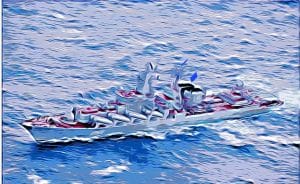
The Government needs to understand, however, that we do not live in a disarmed world.
Disconnect
There is a disconnect between the Government’s stated policy and the current funding of the Defence Forces. More recently, the Government engaged in a public relations exercise when it announced an increase in Defence spending.
The Commission on Defence identified three levels of Ambition.
Level One is the current capability. This would leave the Defence Forces “unable to conduct a meaningful defence of the State against a sustained act of aggression from a conventional military force”.
Level Two: enhanced capability. “ involves identifying specific additional capabilities needed to address key deficiencies in a capacity to undertake current foreseeable new tasks, within the broad terms of current national defence policy.”
Level Three: conventional capability. “Developing full spectrum capability to protect Ireland and it’s people to an extent comparable to similar sized countries in Europe.”
By listing three alternative scenarios, the Commission has perhaps inadvertently created the impression that any of the three Levels would be an equally valid choice.
However, what is required from the Government is the Level required to vindicate the Sovereignty of the State; in other words to provide conventional full spectrum capabilities to protect Ireland and it’s people to an extent comparable to similar sized countries in Europe.
Article 5 of the Constitution proclaims that “Ireland is a sovereign, independent democratic state.”
It was the sovereign duty of the State to deploy its Navy off the south-west coast when there was suspicious activity being carried out by Russian vessels. That is the task of our naval vessels.
It is the task of our Air Corps to defend our airspace.
It is the task of our Defence Forces to defend our citizens, our territory our air space and our seas.
Since the Russian invasion of Ukraine, the security situation in Ireland has deteriorated with the decommissioning of a third of the naval fleet.
Since the Russian invasion of Ukraine, the security situation in Ireland has deteriorated with the decommissioning of a third of the naval fleet.
Three of the Navy’s nine ships, the L.É Eithne, the L.É Orla and the LÉ Ciara were decommissioned on the 8th July 2022. The government has purchased two inshore patrol vessels from New Zealand and the Department of Defence continue to work on procuring a multi-role vessel (MRV) to replace the flagship L.É Eithne.
While inshore vessels are also required this does not address the failure to have sufficient naval forces to patrol our exclusive economic zone. An exclusive economic zone (EEZ), as prescribed by the 1982 United Nations Convention on the Law of the Sea is an area of sea in which a coastal state such as Ireland has special rights regarding the exploration and use of marine resources, living and non-living, including energy production from water, currents and wind. It extends from the outer limit of the territorial sea (12 nautical miles from the low-water line along the coast in question) out to 200 nautical miles from the coast.
Privatisation of vital State functions
The latest abdication of responsibility by the State is for the second time to put the Irish Coastguard Aviation Service out to tender with a deadline of the 31st August 2022. In summary, the State is putting out to tender the provision of helicopter and aircraft services for the Irish Coastguard, such as rescue at sea, functions that were traditionally discharged by the Air Corps. The tender includes the provision by way of aviation supports to State bodies including the Air Accident Investigation Unit and Marine Casualty Investigation Board. These tasks were previously performed by the Air Corps.
The public procurement competition is being conducted by the “competitive procedure with negotiation”, as provided for under the European Union (Award of Public Authority Contracts) Regulations 2016 (S.I No.284/2016).
For the second time, the Search and Rescue task is being outsourced to a private company for a period of 10 years. The last contract was initially costed at €500 million. The new contract will cost in excess of 1billion euro. If the Air Corps had been used the State could have made a substantial saving as they could perform the duties at a lower cost and critically, we, the people, would own the assets.
Significantly there is no reference to any defence responsibility in the advertising tender. By allowing over €1 billion to be contracted out to a private organisation, the Government is effectively undermining the capability of the State’s Air Corps.
The advantage of having the skills retained and developed within the Air Corps is that the Air Corps can also provide a defence capability. Given the precarious security situation in Europe it is obvious that there is going to have to be a maximisation of all resources to discharge the primary duties of the State. What the Government is doing is sub optimising their own investment and weakening the capability of the Air Corps.
It is akin to putting public transport routes out to tender, and not allowing Dublin Bus, Bus Éireann and Iarnród Éireann (without providing any resources for those bodies) even to compete for the contract. The Air Corps are even further disadvantaged in that, unlike the commercial semi state organisations, the Air Corps does not have access to investment funds. But the real recklessness is that by wasting an opportunity to increase the skill and air capability of our Defence Forces the Government is further jeopardising the security of its citizens and the viability of the State.
This is a flaw in strategic thinking in assessing the value of the Coast Guard Search and Rescue contracts by financial measures alone, to the exclusion of other benefits which cannot be monetised. Put simply, the State will pay the cost for the duration of the private contract but not own the vital assets – the aircraft and helicopters.
A strategic threat.
Undersea fiber optic cables funnel some 97% of the world’s global communications and Internet traffic. The transatlantic network is critical to global communications and financial markets. Russia is engaged in hybrid and cyber warfare.
The report of the Commission on the Defence Forces highlighted the vulnerability of cables, It recommended the enhancement of subsurface capabilities to monitor subsea cables.
In January 2022 Russian naval exercises were carried out above the cables in our south western approaches. Ireland had no naval capability to respond.
The Irish Times
The Irish Times belatedly started to identify strategic threats to Ireland but came up with the wrong strategy in it’s editorial of 29 July 2022 when it advocated abdicating responsibility to Britain.
The Irish Times exulted in the fact and reported as if it were a positive development that Ireland will be able to rely on the British Navy “… whose new asset will be tasked ..to operate in the Irish exclusive economic zone but outside Irish territorial waters.
The Irish Times exulted in the fact and reported as if it were a positive development that Ireland will be able to rely on the British Navy “… whose new asset will be tasked ..to operate in the Irish exclusive economic zone but outside Irish territorial waters.
In doing so primarily to protect UK interests just as the RAF occasionally protects Irish and British airspace by intercepting Russian jet incursions. The UK effectively extends an element of the NATO protective umbrella to Ireland.”
The Irish Times has resiled so far from the concept of an Independent Ireland that the approach would not be out of place in a Pre-Independent Ireland or a far-flung protectorate (a state that is controlled and protected by another) of the British empire in the nineteenth century.
But Ireland is a sovereign state: it is not open to Ireland to abandon its responsibilities for its territory, airspace and exclusive economic zone.
It is the sovereign duty of the State to deploy its ships into our exclusive economic zones off our coasts.
It is questionable whether it is a permissible delegation in international law to have another sovereign State police our airspace and police our exclusive economic zone.
The rights and duties of neutral States have evolved since the Hague Conventions of 1907 and they continue to evolve in the new age of Globalism and Imperialism. But to the extent that the law of neutrality embodies a principle it is the principle of impartiality. This is the principle that guides a neutral state in discharging its obligations. The extension of the British umbrella to Ireland would certainly give rise to the perception that we are not discharging our duties as a neutral state.
In modern societies self-help has become the exception rather than the rule, whereas in international law relying on national resources has remained the rule.
Therefore, the primary duty to defend the territorial integrity of the State, its airspace and seas falls on the Government of Ireland.
Defence should not be abdicated to the dead hand of Finance; this is the same Department of Finance, that was saying everything was under control and were surprised when the Troika rolled up to Merrion Street and knocked on the door of the Department of Finance.
Defence should not be abdicated to the dead hand of Finance; this is the same Department of Finance, that was saying everything was under control and were surprised when the Troika rolled up to Merrion Street and knocked on the door of the Department of Finance.



